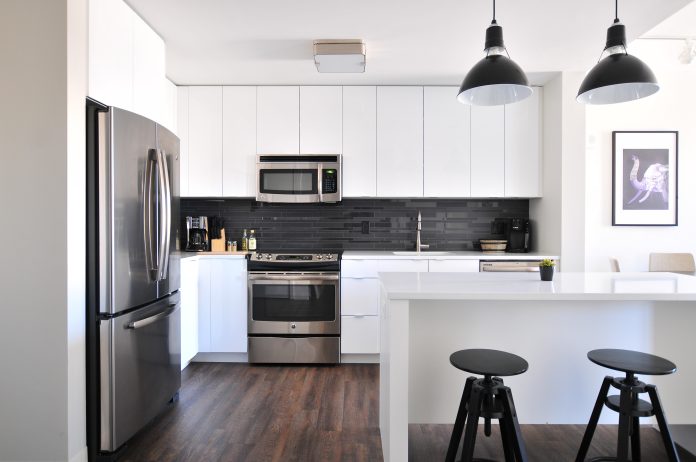Deciding whether to use loans to fund home improvements is a significant financial choice that requires careful consideration of various factors.
With the cost of renovating a 3-bedroom home coming in at £76,900 according to Check-a-Trade, there is a case for using a loan, or combining this with your savings.
Home renovations can enhance your living space, increase property value, and potentially save on future maintenance costs. However, it’s crucial to weigh the pros and cons of financing these projects through loans before making a decision.
What Are The Pros of Using Finance To Pay For Renovations?
Immediate Access to Funds: One of the primary advantages of using loans for home improvements is the immediate access to funds. This allows you to start and complete your projects promptly, addressing any urgent repairs or enhancements.
Increased Property Value: Certain home improvements, such as kitchen remodels or bathroom upgrades, can significantly increase the value of your property. A loft conversion can add up to 20% extra value, a new kitchen can add 10-15% and a new bathroom can add 5-8% added value. If executed wisely, the return on investment may outweigh the initial cost of the loan.
Tax Benefits: In some cases, the interest paid on home improvement loans may be tax-deductible. This can provide a financial advantage and potentially lower the overall cost of the loan.
Flexible Loan Options: There are various loan options available for home improvements, including unsecured, installment loans and personal loans. Depending on your financial situation and the scope of your project, you can choose a loan that suits your needs and aligns with your credit score.
Spread the Cost: Loans allow you to spread the cost of home improvements over a more extended period, making it easier to manage your budget and avoid a significant upfront expense.
What Are The Cons For Using Loans To Cover Home Improvements?
Interest Costs: One of the most significant drawbacks of using loans for home improvements is the interest cost. Depending on the type of loan and prevailing interest rates, you may end up paying a substantial amount in interest over the life of the loan.
Risk of Overleveraging: Taking on too much debt to fund home improvements can lead to overleveraging, which may pose financial risks. It’s essential to assess your ability to repay the loan and avoid straining your budget.
Property Value Fluctuations: The real estate market is subject to fluctuations, and property values may not always increase as expected. If the market experiences a downturn, the return on investment for your home improvements may be lower than anticipated.
Consider Ongoing and Unexpected Costs: Whilst you may have put money aside for home improvements, you may be surprised at the extra costs when things do not go as planned. You may find that extra finance is needed and required on top in the event of any damages, boiler repairs or plumbing problems that often arise.
Loan Terms and Fees: Pay attention to the terms and fees associated with the loan. Some loans may have high origination fees, closing costs, or prepayment penalties, which can add to the overall expense of the project. If you are securing the loan against your property, this can potentially help you access larger sums (£100,000+) but this comes with risks such as repossession if you are unable to pay it back.
Potential for Over-improvement: There is a risk of ove-rimproving your home, especially if the improvements are more extensive or luxurious than what is typical for your neighborhood. This could result in a diminished return on investment when selling the property.
In conclusion, the decision to use loans for home improvements depends on your financial situation, the nature of the projects, and your long-term goals. Before proceeding, carefully assess the costs and benefits, considering factors such as interest rates, potential returns on investment, and your ability to manage the repayment. Also consider alternatives and grants that could make your renovations more affordable. It’s advisable to consult with financial professionals to ensure that the chosen financing option aligns with your overall financial strategy.



 Bitcoin
Bitcoin  Ethereum
Ethereum  Tether
Tether  XRP
XRP  Solana
Solana  USDC
USDC  TRON
TRON  Cardano
Cardano  Lido Staked Ether
Lido Staked Ether  Avalanche
Avalanche  Toncoin
Toncoin